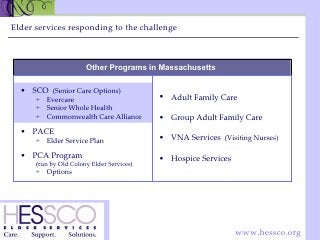
Talking about death was never an appropriate topic at the time the diagnosis was made. Families need time to process the news. While the memory service is primarily concerned with primary care discharges and the diagnosis, treatment and discharge of patients, conversations about endof-life care are no longer taboo. As the program developed, it became more natural for the family and the clinician to discuss end-of-life options. By building relationships with the families, the conversations became more natural.
Alzheimer's disease is the most common form of dementia
Alzheimer's is the most prevalent form of dementia and accounts for approximately two-thirds. It causes brain damage that gradually reduces communication and thinking abilities. Because it deteriorates brain functions over time, the symptoms of Alzheimer's disease vary from person to person. While it is more common among older adults, lifestyle and genetic factors also play a role.
Multiple forms of dementia can be present in one person. There are also vascular and Lewy body conditions that can cause dementia. These diseases cause damage to brain blood vessels, resulting in memory and thinking problems. Vascular dementia can occur suddenly or gradually, and symptoms may appear simultaneously. People with vascular dementia may also experience a stroke or have other medical conditions that block brain blood flow.

Medication can be used to treat Alzheimer's Disease
Alzheimer's disease is incurable. However, medications can ease the symptoms and slow the disease's progression. These medications are based on tests that measure memory and thinking skills as well as awareness of time and place. While no cure exists, some of these drugs may help your loved one live a better quality of life. These medications can be used to prolong the life of your loved one.
Medication for Alzheimer's disease has shown some promise. To maximize effectiveness, medications are usually administered at the lowest possible dose. They then increase gradually. It is important to remember that some medications can have dangerous side effects. Some people may not experience any benefit or improvement from this medication. Before you start any medication, make sure to talk with your doctor about all side effects and benefits.
Memory care can be provided by assisted living communities.
Assisted living communities offer a wide range of services to meet the needs of older people. These services include medication management, housekeeping and laundry, transportation, and social programs. Staff is available 24 hours a days. Some communities have their own dining rooms, with menus tailored to meet the nutritional needs. Other residents may wish to bring their own furniture, personal items, and other belongings. Senior citizens who require extra assistance with daily activities may also be able to benefit from assisted living facilities.
Some assisted living communities provide special rooms, wings, and buildings for residents with memory issues. These memory care facilities offer 24-hour supervision and may have structured activities or outdoor socializing areas. Some facilities also charge for the services offered. Depending on the type of care needed, memory care may be an appropriate option for some seniors. Memory care can be provided by assisted living facilities to seniors who have not had a history of dementia.

Medicare does not pay for memory care
While Medicare does not cover memory care services, some facets are covered under Medicaid. These services are provided through nursing homes. State laws may vary on the type of services that are offered. Dual-eligible means that approximately 12 million people can be eligible for both Medicare or Medicaid. There are different types of Medicaid and Medicare plans, and each may cover memory care. Medicare may also cover Alzheimer's treatment in some instances, provided the care is medically necessary.
Medicare will only cover short-term memory care. Long-term care, assisted living and personal care services are not covered by Medicare. Medicaid and Medicare supplemental insurance (Medigap), cover many personal care services. Although memory care is commonly seen as a separate option for some, it is important that you understand that this type is available in all areas of the country. Many dementia patients need both custodial and long-term support with daily activities.